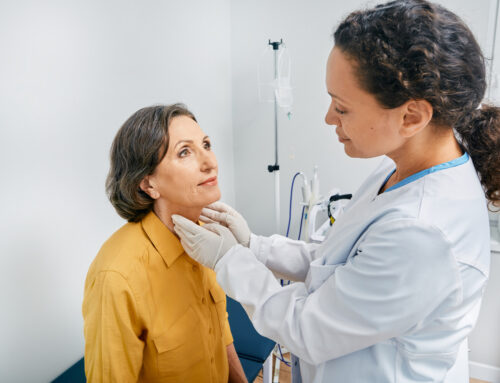A physical assessment, or wellness exam, is a regular checkup performed by your primary care physician (PCP) to check on your overall physical wellness. Annual or periodic physical examinations are great opportunities to ask your PCP any questions you might have about your wellbeing or to discuss any health issues that may have come up recently.
Your PCP can be a physician, a nurse practitioner, or a physician assistant. During a physical or wellness exam, your PCP will run a variety of tests to assess your overall health. Depending on your age, medical or family history, you may require additional examinations.
Why Are Physical Exams Important?
During physical wellness exams, your PCP will check for any potential risks or health developments since your last exam and advise you with options on how they might be best treated. They will also work to identify any issues that could develop in the future. These exams will continue to keep you updated on the status of your health and can provide recommendations on how you can make some changes to your lifestyle so you can continue maintaining optimal health.
How Should You Prepare for a Wellness Exam?
The first step is to schedule an appointment with a physician you like and feel comfortable with. If you don’t have a physician, the TopLine MD Alliance has affiliated primary care physicians who can address your primary care needs and answer all of your questions. You can also contact your insurance company to find providers in your vicinity who accept your insurance.
When you go in for your physical exam, make sure to bring a list of all medications that you’re currently taking, including all herbal supplements and over-the-counter drugs. Let your doctor know of any symptoms you might be experiencing and any other medical concerns that you may have. Records of previous examinations and test results, especially if they are recent, will be helpful to share with your physician. Make a note of any recent surgical history, and if you have a pacemaker, defibrillator, or any other implanted device, bring your device card or a copy of the front and back. Finally, make sure to bring a list with any questions that may have come up since your last exam.

What to Expect During a Wellness Exam?
Before you see your primary care physician, your examination may start with important health questions from a nurse or medical assistant. You will be asked about your medical history, if you have any symptoms, allergies, or recent surgeries. Your height, weight, and pulse will be checked as well.
Your physician will ask you about your general condition since your last examination and ask you if you’ve experienced any new symptoms lately such as headaches, sore throats, infections, or stomach aches. Your physician could also ask about your health habits, including whether or not you smoke, drink alcohol, diet, or if you wear sunscreen. Questions about stress, your mood, and other questions related to your mental health might come up as part of your comprehensive wellness exam.
The physical exam starts with an examination of your body for unusual growths or marks. Your eyes, ears, neck, heart, and abdomen will be checked for abnormalities and your physician will feel various parts of your body to inspect the consistency, location, size, tenderness, and texture of your organs individually. Using a stethoscope, your physician will then listen to various parts of your body, including your heart, lungs, and intestines. Using the same tool, the rhythm of your heartbeat and valves along with your breathing capacity will also be examined. Functionality of nerves, joints, and muscles are checked to ensure that they are all working at their best. Screenings for testicular cancer and hernias are routine as well.
During the exam, your physician will tap your body gently at various points as part of a procedure known as “percussion”. This procedure tests the function, size, and location of your organs and checks that fluid is not building up in parts of your body where it should not be.
Physical examinations should not be painful. If you find that you are in pain as the result of an examination, communicate this with your physician.
What to Expect After a Wellness Exam?
After your appointment, your primary care physician may call you to follow up, at which point they will give you your test results and their conclusion of any findings. If there are any problems, your physician will let you know what you can do or if there is any treatment that can help. Additional screenings or tests may be requested for a later time, but if all is well, you won’t have to do anything until your next annual visit.

Find the Right Physician for You
It is most important that you find a primary care physician that is the right fit for you and is covered by your insurance. Before your exam, be sure to talk to ask about billing and insurance to ensure you are covered with the physician you are scheduled to see.
Your time with your doctor is your own to use in the best interests of your overall health, so it is important that you feel comfortable with your primary care physician. Never be afraid to ask questions! Remember that if you’d like a second opinion, or if you do not feel comfortable with your physician, it is never wrong to switch providers. You can always ask for copies of your own medical records to keep in case you see another provider down the line.
Ready to schedule your annual wellness exam? TopLine MD Alliance has affiliated primary care physicians who can address your primary care needs and answer all of your questions. Find a primary care physician near you >
The TopLine MD Alliance is an association of independent physicians and medical practice groups who are committed to providing a higher standard of healthcare services. The members of the TopLine MD Alliance have no legal or financial relationship with one another. The TopLine MD Alliance brand has no formal corporate, financial or legal ties to any of the affiliated physicians or practice groups.



